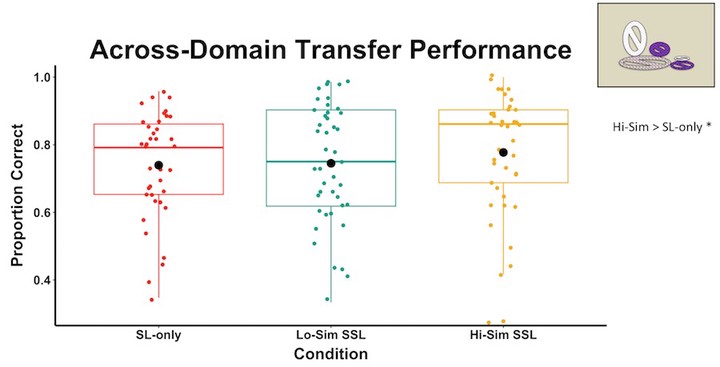Patterson & Kurtz (2018) Semi-supervised learning: A role for similarity in generalization-based learning of relational categories
 Image credit: Unsplash
Image credit: Unsplash
Abstract
Research on semi-supervised category learning has been sparse despite its representativeness of naturalistic category learning and potential applications. Most of the semi-supervised literature to date has focused on establishing the phenomenon. These efforts have produced mixed results and have explored a relatively limited set of learning circumstances. In the current work, we contribute a novel investigation of semi-supervised learning by extending the paradigm to relational category learning and evaluating the role that item similarity plays in the effectiveness of unsupervised learning opportunities. Our results show first- ever evidence of semi-supervised learning in the induction of relational categories and, further, that the similarity between supervised and unsupervised examples critically dictates whether benefits of unsupervised exposures accrue. We conclude with implications and future directions.